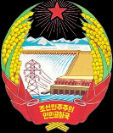So the early report is that a deal has been reached with North Korea: energy aid in exchange for steps toward disarmament.
It’s very preliminary still, and this whole thing could collapse over a North Korean demand for more energy than the other five powers are willing to give, or, more likely, over shifting North Korean positions on what disarmament steps they will take and when.
It will be interesting to see, as the details emerge, where exactly this leaves the Bush administration in terms of its North Korea policy. Did the hard line work? Were the Bushies right all along to toss the Agreed Framework over North Korea’s dabbling with uranium? Were they right to insist on talking only through the six-party framework rather than one on one?
The last question is the easiest to answer: No. The North Koreans have proved far more willing to compromise since Chris Hill, our lead negotiator, started talking one-on-one with the North Koreans (albeit in a format that the Bush administration, never sticklers for reality, continue to insist doesn’t qualify as one on one). As for the rest of it, let’s keep in mind that we’re now asking North Korea to roll back its plutonium-bomb developments, which wouldn’t exist if not for the collapse of the Agreed Framework.
There is no indication that the central problem of a poor, hostile, dictatorial, aggressively criminal North Korea has been solved. Still, if we’re all stepping back from the brink of nuclear war, that’s good.
For more on North Korea, check out Richard Bernstein in the New York Review, who notes that back in the early Clinton years, conventional wisdom had it that the communist regime in North Korea would wither and collapse like so many others had in Central and Eastern Europe. At this point, I think a more realistic model is that of China and Vietnam, where the Communist Party has maintained control while transforming into something new and pro-capitalist. And the road to such a transformation is through engagement, not isolation.
The Kim dynasty seems unlikely to collapse through internal decay, though one never knows. And even if it did, that would hardly be the end of our troubles: a headless state full of fanatical militants with no food is not a pretty prospect for any of its neighbors. Only engagement has any chance of creating a North Korea that can join with South Korea to become a prosperous, peaceful Korea.
Update: It turns out that South Korea’s lead negotiator is Chun Yung-woo, with whom I had the pleasure of working closely on a number of occasions when he was Deputy Permanent Representative at the Permanent Mission of the Republic of Korea to the United Nations. In my experience, he was extremely intelligent, incisive, charismatic and tough-minded — ideal for his current role, really. Should an accord be signed, I will have to send him a note of congratulations.


